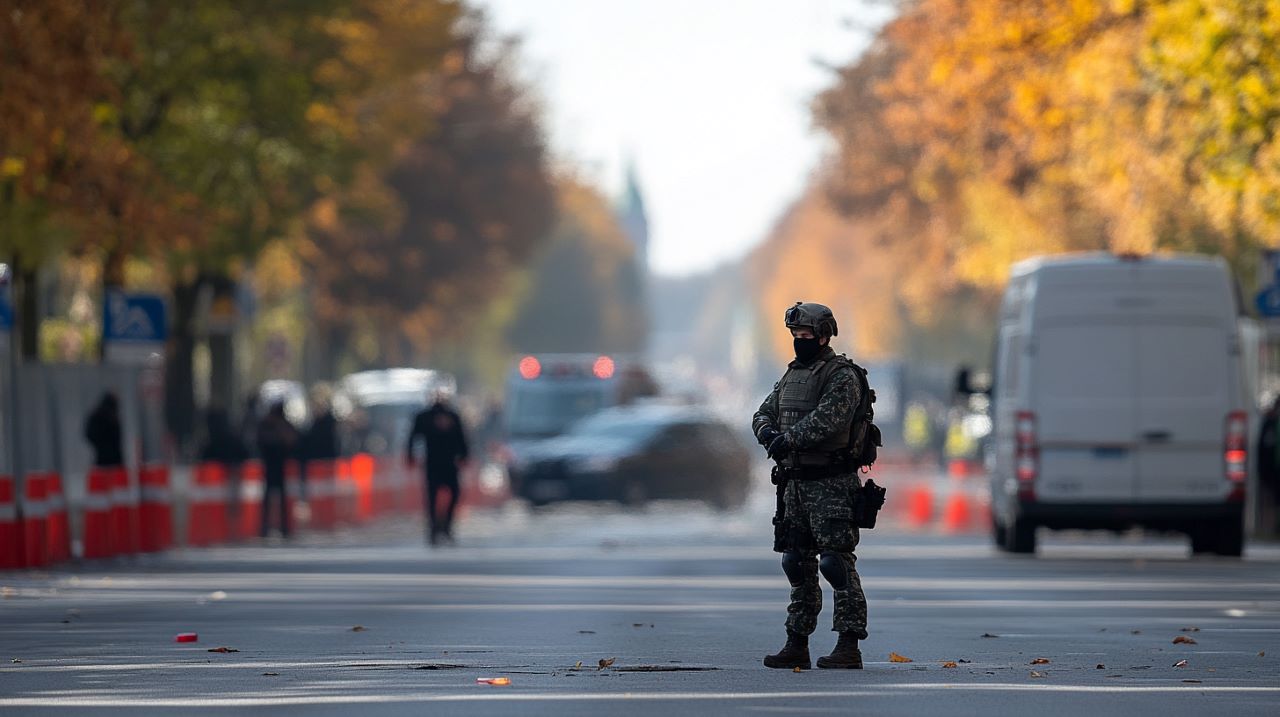Germany’s Interior Minister Identifies Christmas Market Attack Suspect as ‘Islamophobe’

On Friday evening, a car-ramming attack devastated a Christmas market in Magdeburg, Germany, claiming five lives and injuring over 200 individuals, with approximately 40 sustaining severe injuries.
Authorities detained the suspect, identified as 50-year-old Taleb A., at the scene. German Interior Minister Nancy Faeser characterized the suspect as an ‘Islamophobe,’ highlighting his history of anti-Islam rhetoric. This horrific event has deeply unsettled the nation, prompting grief, anger, and urgent debates about public safety and ideological extremism.
Suspect’s Background and Ideological Motives
Taleb A., a psychiatrist who has resided in Germany for nearly two decades, is noted for his outspoken opposition to Islam. His digital footprint reveals affiliations with far-right groups and anti-Islam political entities, including the Alternative for Germany (AfD). While investigators continue to examine the precise motivations for the attack, his online activity strongly suggests ideological underpinnings consistent with far-right extremism.
Reports have surfaced that Saudi Arabia previously alerted German authorities to Taleb A.’s extremist tendencies. However, these warnings did not result in actionable measures, exposing potential vulnerabilities in international intelligence collaboration and domestic surveillance frameworks. Critics contend that these gaps may have contributed to the tragedy, reigniting debates about the balance between safeguarding civil liberties and preempting security threats.
Security Implications and Political Repercussions
The attack has intensified discourse around Germany’s public safety measures and migration policies. With the far-right AfD party gaining traction during the current election cycle, the event has become a flashpoint for broader ideological battles. Analysts suggest that such incidents could amplify support for far-right platforms advocating strict immigration controls and expansive security policies. Conversely, mainstream political factions face the challenge of addressing these public concerns without reinforcing polarizing narratives.
Chancellor Olaf Scholz issued a strong condemnation of the attack, extending condolences to the victims and pledging to bolster security at public venues. In a televised address, Scholz emphasized the importance of societal unity against violence and hatred, framing the incident as an assault on Germany’s core values. Local officials in Magdeburg echoed this sentiment, calling for increased law enforcement resources and advanced surveillance technologies to enhance safety at high-profile events.
The attack has also renewed scrutiny of Christmas markets, which hold significant cultural and symbolic value in Germany. These festive gatherings, traditionally associated with joy and community, have increasingly become targets for extremists due to their prominence. Vigils and public commemorations have sprung up across the country, with citizens uniting in grief and resolve. Such acts of solidarity underscore the resilience of communities in the face of ideological violence.
Investigative Efforts and Strategic Adjustments
Investigators are diligently probing Taleb A.’s background, affiliations, and potential networks to construct a comprehensive picture of the events leading up to the attack. Forensic and intelligence experts are analyzing his communications, online activities, and possible accomplices to ascertain the extent of premeditation and external influence. This methodical approach underscores the importance of understanding not only the individual but also the broader systemic factors enabling such actions.
The incident has exposed deficiencies in Germany’s approach to countering far-right extremism. Advocacy organizations have long criticized an asymmetrical focus on Islamist threats at the expense of addressing the growing menace posed by far-right ideologies. This attack reinforces the necessity of a holistic counter-extremism framework encompassing all ideological spectrums.
Moving Forward: Balancing Freedom and Security
As Germany reflects on this tragedy, policymakers are under pressure to implement measures that mitigate the risk of future attacks while upholding democratic principles. Proposals include expanding funding for counter-extremism initiatives, refining the monitoring of flagged individuals, and enhancing cooperation between international intelligence agencies. These strategies aim to strike a delicate balance between maintaining civil freedoms and ensuring robust public safety.
The Magdeburg attack represents a critical juncture for Germany, challenging its ability to address the complexities of ideological extremism. By fostering unity, promoting accountability, and reinforcing its commitment to democratic values, the nation can navigate this difficult period and work toward a more secure and inclusive future.
